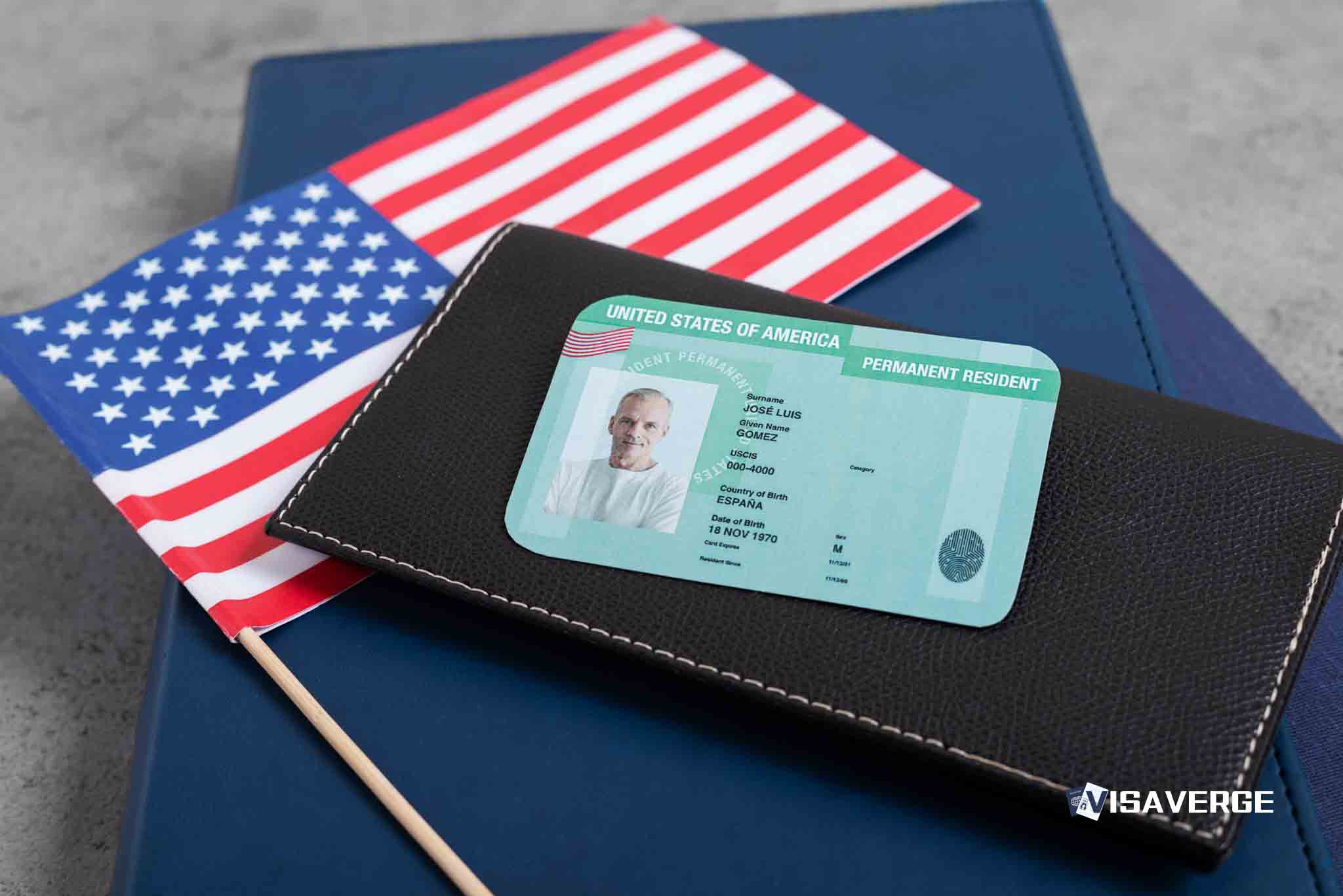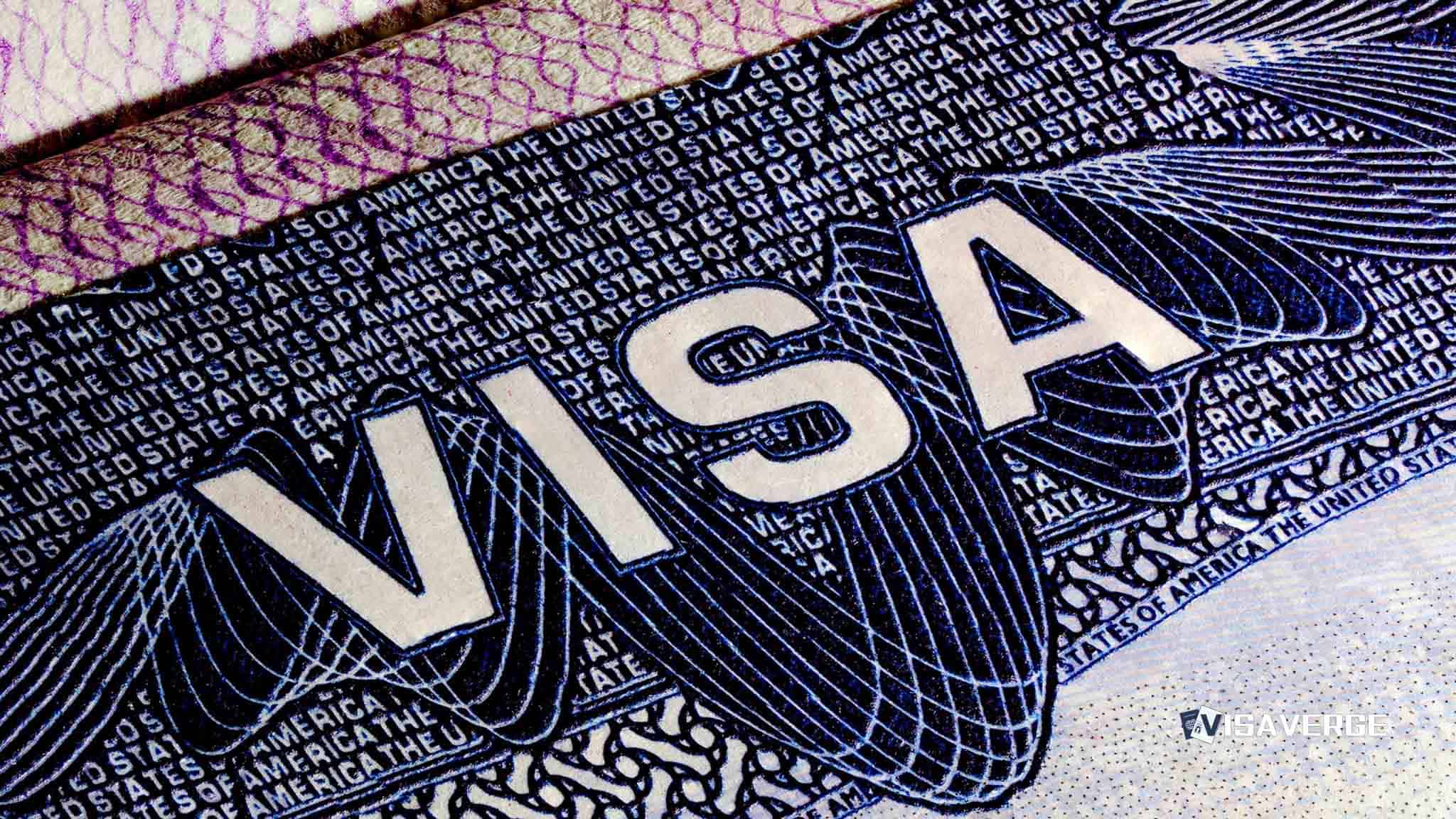(UNITED STATES) The U.S. government shutdown that began on October 1, 2025 has slowed or stalled thousands of visa cases caught in administrative processing, disrupting consular visa processing worldwide and leaving families and employers unsure when decisions will resume. Applicants whose cases require interagency clearances have been told to expect longer waits as the security checks that underpin administrative processing rely on multiple federal systems now operating at reduced capacity or paused altogether.
Consular posts face operational staff reductions and system disruptions, which in turn have triggered canceled appointments, postponed interviews, and extended administrative processing for cases already in the pipeline.

Immediate impact at embassies and consulates
The most immediate effects are felt overseas at U.S. embassies and consulates, which fall under the Department of State and are directly affected by the shutdown.
- When local consular teams lose access to interagency databases or see their staffing curtailed, work on administrative processing grinds down.
- Applicants waiting on consular visa processing for family reunification or spousal visas—especially those who have completed interviews and were told their cases required additional checks—are receiving notices about delays or simply seeing no movement.
- These cases cannot be finalized until all clearances are completed, and during a government shutdown the interagency framework that supports those decisions slows, creating a ripple effect across categories.
Scale of the backlog and cascading effects
The shutdown compounds an already heavy lodgement burden. With more than 3.4 million cases currently pending, any additional pause tightens the bottleneck.
- Applicants who depend on more than one agency, particularly those requiring security checks or clearances, face the longest waits until normal operations resume.
- Administrative processing is an interlinked chain, not a single step. Slowdowns at one agency translate into halted action at another.
- The longer the shutdown lasts, the more interviews and case reviews stack up, making recovery times longer even after government offices reopen.
What stays open and what doesn’t
Despite disruption, some fee-funded operations continue in part.
- USCIS remains open because it is primarily funded by filing fees and continues to accept and adjudicate most petitions and applications.
- However, USCIS cannot complete matters that rely on other agencies’ data, checks, or certifications. That means some USCIS cases remain stuck awaiting information from partner agencies affected by the shutdown.
- Consular posts also run on fee-funded services but are still affected by staff shortages, interagency system slowdowns, and background check delays.
The difference between what’s technically open and what’s practically moving becomes clear to applicants who see receipts arriving but decisions not issued, interviews rescheduled, and administrative processing stretched.
Experience for applicants already in administrative processing
For those already in administrative processing when the shutdown started, the process becomes a waiting game.
- Consular officers cannot clear a case that requires a pending security or interagency check.
- Applicants report canceled appointments and postponed interviews, which will need to be rebooked after operations normalize.
- VisaVerge.com reports that the cumulative effect is most acute in cases dependent on multiple agencies, as each check must be completed before a visa can be issued.
This layered dependency explains why administrative processing is particularly vulnerable in a shutdown environment compared with petitions handled entirely within USCIS channels.
Official guidance and practical reality
The Department of State’s public guidance explains that administrative processing often follows the visa interview and can take additional time because of security checks and interagency processes.
- Applicants are generally advised not to make final travel plans until visas are issued, advice that carries even more weight amid a shutdown.
- Official information on how administrative processing works is available from the government’s resources: U.S. Department of State’s page on administrative processing.
While those instructions describe normal operations, the current slowdown means timelines stated on standard guidance are aspirational rather than assured.
Precedents and possible relief when government reopens
When the government eventually reopens, there is a pattern for managing fallout.
- Historically, USCIS has accepted late filings for extension of stay or change of status requests if the petitioner can show the shutdown was the primary reason they missed the deadline.
- This precedent does not accelerate administrative processing overseas, but it can provide relief for those whose stateside filings became late during the lapse in funding.
- The principle: if a filing delay was caused by the shutdown, applicants may be able to submit after the deadline with explanation and evidence; USCIS has, in past shutdowns, exercised discretion to accept those filings.
Human and economic costs
For families, the human cost is felt in missed milestones and prolonged separations.
- A spouse who has cleared the interview but waits in administrative processing faces an uncertain extra delay, and rescheduling itself can be slow once consular operations return.
- Employers expecting key staff to arrive on a set date may need to revise hiring plans if a new hire’s case entered administrative processing shortly before the shutdown.
- Administrative processing is opaque and timeline estimates are rarely firm even in normal times; during a shutdown, applicants often have few concrete updates until systems come back online.
How the backlog and scheduling will be managed after reopening
The cycle also has broader system effects.
- Interviews canceled during a shutdown will be rebooked later, creating a queue that spills into future weeks or months.
- Cases in administrative processing remain in limbo until databases sync, agencies coordinate again, and officers receive the clearances they need.
- VisaVerge.com analysis indicates even a modest shutdown can push completion dates farther out than the number of days the government was closed, because work does not restart instantly and agencies must clear backlogs.
Consular teams often prioritize the most urgent categories first, which can frustrate applicants whose files were already deep into administrative processing.
Limits on speeding up cases during a shutdown
Applicants sometimes assume a consulate can speed things up if they ask repeatedly. During a government shutdown, that assumption runs into hard limits.
- If a background check is pending in a partner agency affected by the shutdown, the consular post has no ability to override the delay.
- The same is true for biometrics-derived checks and interagency verifications that form part of security screening.
- Consular officers generally cannot finalize until all clearances return “no derogatory information” or equivalent results.
In the current climate, patience is not only advisable; it’s the only practical option until the underlying systems return.
Why USCIS notices can be misleading
The fact that USCIS continues fee-based operations has confused some applicants who see receipts and notices arrive on schedule.
- The key distinction: USCIS can accept and adjudicate filings fully within its scope.
- Where a case’s final adjudication requires an outside clearance, the file may sit in a holding pattern.
- For consular visa processing overseas, even fee-funded activities meet practical limits when staffing is reduced and interagency systems are interrupted.
The result is a patchwork of normal-looking intake and slowed decision-making—visible in longer administrative processing times, increased interview postponements, and an uptick in canceled appointments.
What to expect when normal operations resume
When the government reopens, the first visible changes will likely be reactivated systems and a rush to restore routine services.
- Consulates will work through canceled interview lists.
- Administrative processing queues will begin to move as agencies clear pending checks.
- Consular sections will communicate about rescheduling and restore online appointment availability in phases.
USCIS has in the past considered requests to accept late filings where the shutdown was the primary reason for missing a deadline, though each case depends on its facts and evidence.
None of this shortens the time a case spent waiting during the shutdown, but it sets the stage for measured recovery.
Practical advice for applicants and stakeholders
The only consistent theme is unpredictability until the shutdown ends.
- Administrative processing is inherently variable because it depends on the number and type of interagency checks required.
- Shutdown conditions amplify uncertainty for families, employers, students, and exchange visitors.
Recommendations:
- Families should expect longer waits before visa issuance and avoid final travel plans until visas are in hand.
- Employers should build extra time into onboarding schedules for international hires.
- Students and exchange visitors should prepare to adjust start dates if their cases fall into extended processing.
All ripple effects originate from the same point: administrative processing cannot finish without cooperation among several federal agencies, and a shutdown weakens that cooperation.
Key takeaway: The visa system is heavily interconnected, and a government shutdown makes those connections visible through silence—calendars without interviews, portals without updates, and passports held longer than expected. Until the government reopens and interagency channels flow again, administrative processing will stay slow, consular visa processing will feel the pressure of limited staffing and paused clearances, and the backlog will take time to clear.
Frequently Asked Questions
This Article in a Nutshell
The October 1, 2025 government shutdown has slowed or paused interagency security checks, extending administrative processing times for consular visas. Over 3.4 million pending cases magnify the backlog; consular posts face staff reductions and limited database access, prompting canceled appointments and postponed interviews. USCIS continues fee-funded operations but cannot finalize cases requiring external clearances. Recovery after reopening will be gradual as agencies clear queued checks, rebook interviews, and prioritize urgent cases, leaving families and employers to expect longer waits.













